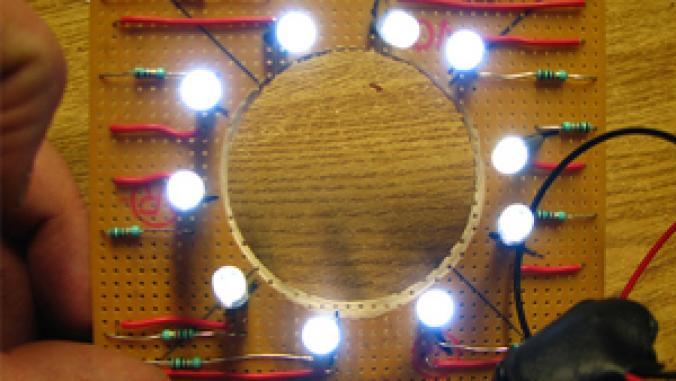JCPenney Adds Solar and Wind Power to Its Green Program
J.C. Penney Company is advancing its environmental program by hosting solar power systems and a wind turbine and by setting a goal of attaining Energy Star status at 200 or more stores by 2011.

J.C. Penney Company is advancing its environmental program by hosting solar power systems and a wind turbine and by setting a goal of attaining Energy Star status at 200 or more stores by 2011.
SunPower Corporation of San Jose, Calif., will install solar power systems on the rooftops of 10 JCPenney stores. Four are in California in the cities of El Cajon, Palmdale, Redlands and Santa Clarita. Six are in New Jersey in Cherry Hill, Deptford, East Brunswick, Freehold, Wayne and Woodbridge. The systems will be financed, owned and operated by a third-party financier, from which JCPenney will purchase the solar-generated electricity under a SunPower Access power purchase agreement.
Broadstar Wind Systems, based in Dallas, Texas, will provide the technology for a hosting arrangement that will bring a Broadstar building-mounted AeroCam wind turbine system to JCPenney's 1.6 million-square-foot distribution center in Reno, Nev. JCPenney will purchase electricity generated by the system from Broadstar.
"Together with the energy-saving initiatives we already have in place in our stores and distribution centers, this is another significant step toward achieving our environmental objectives," said Myron E. Ullman III, JCPenney's chairman and chief executive officer.
JCPenney is the latest major retailer to engage in hosting arrangements for renewable energy systems. The increasingly popular practice in effect allows the host companies to lease the sun and wind. Typically, the companies purchase power from the renewable energy source or sources, or some other third party, at lower rates than are provided by traditional utilities. Installation, operation and maintenance of the systems are borne by the clean tech firm or another third party, which usually also have the rights to any surplus energy generated by system.
Installation of the solar and wind systems in the JCPenney pilot projects are expected to be complete in November.
Company spokesman Tim Lyons said the retailer will realize immediate savings because energy from the solar arrangement will cost less. The solar program is expected to provide more than 4 megawatts of clean electric power. The systems are also expected to help the company avoid emissions of approximately 146,000 tons of carbon dioxide over their 30-year expected lifetime, which is equal to the annual greenhouse gas emissions generated by more than 800 cars. In addition, the solar power plan is considered a long-term hedge for nearly 25 percent of the energy used at the stores in the pilot project. The 10 stores were also singled out for installation of new energy-efficient lighting and advanced energy management systems, both of which are expected to further reduce energy consumption.
Projected energy production and savings weren't available for the turbine program because elements of that system are still being discussed, Lyons said. JCPenney will be one of the early users of the Broadstar turbine, which resembles a paddlewheel, he said.
"These projects further our commitment to incorporate sustainability into all aspects of our operations.," said Jim Thomas, vice president and director of corporate social responsibility for JCPenney. "We will closely monitor the results to determine how we can best leverage these innovative methods to increase our participation in renewable energy projects while also benefiting our business."
JCPenney's initiatives include setting new goals for participation in the U.S. Environmental Protection Agency's Energy Star program. The Energy Star program recognizes commercial buildings and industrial plants that rate in the top 25 percent of facilities in the nation for energy efficiency. Last year, four JCPenney stores were designated as Energy Star locations, making the company the first to have locations qualify for Energy Star certification under a new rating system for nongrocery retail stores. JCPenney wants at least 200 of its 1,083 stores to be awarded that status in the next three years.
Previously launched measures include a push for Energy Management Systems (EMS) and retrofitting store equipment.
By the end of 2008, some 800 stores will be equipped with an EMS, which provides remote monitoring and control of electrical and mechanical systems. The system also keeps tabs on store comfort levels and helps identify opportunities for saving energy.
A retrofitting program continues and as of 2007, 167 stores had undergone lighting retrofits that will save more than 27 million kilowatt-hours of electricity annually, compared with older systems.
The company has also adopted a peer system for sharing info about the firm's eco-friendly efforts: An associate at each store has been named energy captain and has taken responsibility for helping to communicate the importance of energy and resource conservation to the store team.




